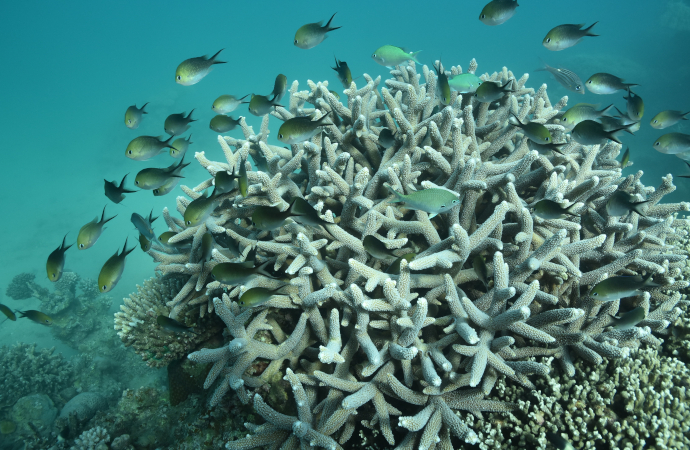BIOSHIFTS
Global redistribution of biodiversity: A macro- and eco-evolutionary approach to understand species vulnerability to global changes
 © Gaël GRENOUILLET
© Gaël GRENOUILLET It is now indisputable that plants and animals are responding to climate change by undergoing the largest redistribution of life on Earth for tens of thousands of years. Yet, recent studies have found that species range shifts are highly idiosyncratic and that climate warming alone is unlikely to explain the rates of biodiversity redistribution. Whereas intrinsic species traits (e.g., thermal tolerance, dispersal ability, ecological specialization) and evolutionary mechanisms (e.g., adaptive potential) are expected to influence both trailing‐edge contractions and leading‐edge expansions, other extrinsic non‐climatic factors (e.g., habitat fragmentation, human pressures) may also constrain or exacerbate range shift processes.
BIOSHIFTS will fill this knowledge gap by addressing the fundamental question of how contemporary climate‐driven range shifts arise from the interplay of intrinsic and extrinsic mechanisms. BIOSHIFTS will upgrade, build upon, and leverage the power of a comprehensive geo‐database compiling range shifts documented in marine, freshwater and terrestrial ecosystems over recent decades, together with open source databases of species traits and innovative phylogenetic comparative methods. The project will thereby investigate whether range shift processes vary across ecosystems, taxonomic groups, or environmental contexts (both natural and anthropogenic).
BIOSHIFTS aims to both synthesize and extend the conceptual and analytical tools in range shift research, thus advancing a predictive science seeking to improve our ability to forecast further biodiversity loss and inform better decision-making processes.

PIs:
Lise COMTE – Illinois State University (USA) ;
Gaël GRENOUILLET – Université de Toulouse (France) ;
Jonathan LENOIR – CNRS (France)
Postdoc:
Brunno DE OLIVEIRA – FRB-CESAB (France)
Bioshifts brings together experts in tropical and temperate biology on various organisms, phylogeny, biogeography, modelisation and political sciences.
Bioshifts was selected from the 2020 call for proposals. The project selection process was carried out by a committee of independent experts.
[05] Comte L, Bertrand R, Diamond S, Lancaster LT, Pinsky ML, Scheffers BR, Baecher JA, Bandara RMWJ, Chen I, Lawlor JA, Moore NA, Oliveira BF, Murienne J, Rolland J, Rubenstein MA, Sunday J, Thompson LM, Villalobos F, Weiskopf SR & Lenoir J (2024) Bringing traits back into the equation: A roadmap to understand species redistribution. Global Change Biology, 30, e17271. DOI: 10.1111/gcb.17271.
[04] Fu Z, Zhan Q, Lenoir J, Wang S, Qian H, Yang J, Sun W, Mbuni YM, Ngumbau VM, Hu G, Yan X, Wang Q, Chen S & Zhou Y (2024) Climate change drives plant diversity attrition at the summit of Mount Kenya. New Phytologist, aceepted. DOI: 10.1111/nph.20344.
[03] Lawlor JA, Comte L, Grenouillet G, Lenoir J, Baecher JA, Bandara R, Bertrand R, Chen I-C, Diamond SE, Lancaster LT, Moore N, Murienne J, Oliveira BF, Pecl GT, Pinsky ML, Rolland J, Rubenstein M, Scheffers BR, Thompson LM, Van Amerom B, Villalobos F, Weiskopf SR & Sunday J (2024) Mechanisms, detection and impacts of species redistributions under climate change. Nature Reviews Earth & Environment, 5, 351-368. DOI: 10.1038/s43017-024-00527-z.
[02] Lenoir J (2024) The continental divide in range-shifting birds of North America. Proceedings of the National Academy of Sciences, 121, e2401808121. DOI: 10.1073/pnas.2401808121.
[01] Lenoir J & Comte L (2024) Rapid range shifters show unexpected population dynamics. Nature Ecology & Evolution, accepted. DOI: 10.1038/s41559-024-02354-3.